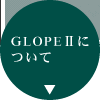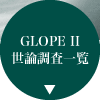予定表 -詳細情報-
| 件名 | LS 安井清峰氏 |
| 開始日時 | 2010年 1月 12日 (火曜日) 12時15分 (GMT+09:00) |
| 終了日時 | 2010年 1月 12日 (火曜日) 12時50分 (GMT+09:00) |
| 場所 | 1号館303教室 |
| 詳細 | 【報告者】安井清峰(早稲田大学政治学研究科) 【共著者】山口総一郎(早稲田大学政治学研究科) 【タイトル】Domestic Support and International Crises 【場所】1号館303教室 【概要】 This paper explores what impact domestic support has on state leaders’ behavior in international crises and conflict outcomes. Assuming that citizens align with hawkish leaders, conventional audience-cost models neglect the other plausible scenario where the citizens dislike the escalation of crises. We present a crisis bargaining game that incorporates the variation in domestic support as an endogenous variable and shows that the conflict behavior of democratic leaders is not as monotonic as prevalent studies suggest. Contrary to existing models with the “hawkish” assumption, the leaders might be able to back down without incurring domestic audience costs. Office-seeking leaders have an incentive to take both tough and soft actions in response to change in public opinion. Crisis outcomes vary depending on the strategic interactions between leaders, voters, and target states. The Gulf Conflict (1990-91) best illustrates our logic. |
| カテゴリー | 政治経済学基礎セミナー・ランチタイムセミナー |








